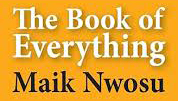What happens when two of Africa’s most intriguing business figures decide to put their stories into print? The result is not just memoirs, but manifestos for the continent’s future. In Gateway to Africa: A Visionary’s Path to Business, Investment and Innovation in Africa, Prateek Suri, the Indian-born entrepreneur dubbed the “Technology Tiger of Africa,” chronicles his rise from software tinkerer in India to billionaire investor shaping Africa’s innovation economy.
On the other hand, “Making It Big: Lessons from a Life in Business” finds Femi Otedola—oil magnate, investor, and one of Nigeria’s most recognizable figures—peeling back the layers of fortune, failure, and persistence in the Nigerian and global markets.
Together, these books serve as dual mirrors, reflecting the gritty realities of African enterprise and projecting the promise of a continent on the cusp of unprecedented transformation.
Despite their different backgrounds, industries, and origin stories, both Otedola and Suri circle back to similar truths about building in Africa.
Otedola recounts near-collapse moments—financial storms, political headwinds—that would have broken lesser men. Suri too, candidly describes failed ventures and sleepless pivots. Both insist resilience isn’t an optional trait in Africa’s markets—it’s oxygen.
For Otedola, fortune came from understanding Nigeria’s shifting regulatory and fuel pricing ecosystem better than anyone else. For Suri, opportunity sprang from recognizing Africa not as “risky,” but as untapped—a land of digital goldmines, fintech revolutions, and sustainable housing projects. Together they teach that global investors who ignore local context are doomed to misunderstand the game.
Whereas Western boardrooms thrive on distance and structure, both men argue that Africa demands presence. Otedola tells of personally bailing out employees during crises. Suri describes walking factory sites or troubleshooting a code bug at midnight. Leadership here isn’t symbolic—it’s visceral.
Policy-makers reading between the lines will find caution and counsel. Otedola warns of inconsistent regulations choking entrepreneurship. Suri underscores the need for harmonized digital and trade policies that match Africa’s ambitions. Both books stress that without enabling environments, even billionaires are forced to fight uphill battles.
For governments across Africa, the message is unmistakable: policy can either accelerate growth or suffocate it. To the hustler dreaming in a co-working space in Nairobi or the startup team coding in Yaba, the books offer shared gospel: patience, grit, and audacity.
Suri’s story screams: build, fail, pivot, and try again. Otedola’s story whispers: guard your reputation, because trust is the ultimate currency. Both together argue: wealth is made by those who stay the course through chaos.
Global readers will find these memoirs more than African case studies—they are blueprints for frontier capitalism. Both men challenge outdated narratives of Africa as a passive recipient of aid or foreign direction. Instead, they present a self-confident, builder-led, globally relevant Africa where fortunes are made, risks are embraced, and innovation doesn’t wait for permission.
The most tantalizing thread? Neither man is finished. Otedola hints at new moves in energy transition and philanthropy. Suri closes with the “fourth stage of human society,” making multi-billion-dollar bets on AI, sustainability, and the singularity itself. These books are less “look-backs” than launchpads. Africa, they suggest, is not just catching up—it’s redefining the next global era of business.
In the end, “Gateway to Africa” and “Making It Big” are not simply about two men. They are about the restless, unrelenting spirit of a continent determined to make its mark—not tomorrow, but now.






